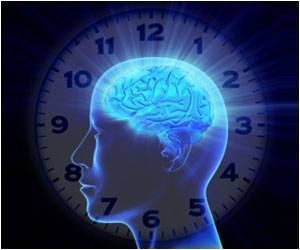A meta-analysis shows that brain training can help in the fight against dementia.

- Mild cognitive impairment involves a decline in memory and other thinking skills and is one of strongest risk factors for dementia.
- Brain training is a treatment for enhancing memory and thinking skills by practising mentally challenging computer-based exercises.
- It could help improve in global cognition, memory, learning and attention, as well as psychosocial functioning.
- Training is only effective before the onset of dementia.
People with mild cognitive impairment are at one-in-10 risk of developing dementia within a year - and the risk is markedly higher among those with depression.
Brain training is a treatment for enhancing memory and thinking skills by practising mentally challenging computer-based exercises, which are designed to look and feel like video games.
The team, comprising researchers from the Brain and Mind Centre , reviewed more than 20 years of research and showed that in people with mild cognitive impairment, brain training could lead to improvements in:
- global cognition
- memory
- learning
- attention
- psychosocial functioning (mood and self-perceived quality of life)
Dr Amit Lampit from the School of Psychology, who led the study said the results showed brain training could play an important role in helping to prevent dementia.
To arrive at their conclusions, the team combined outcomes from 17 randomized clinical trials including nearly 700 participants, using a mathematical approach called meta-analysis, widely recognized as the highest level of medical evidence.
"Taken together, these wide-ranging analyses have provided the necessary evidence to pursue clinical implementation of brain training in the aged-care sector - while continuing research aimed at improving training effectiveness", Dr Lampit said.
Associate Professor Michael Valenzuela, leader of the Regenerative Neuroscience Group at the Brain and Mind Centre, believes new technology is the key to moving the field forward.
"The great challenges in this area are maintaining training gains over the long term and moving this treatment out of the clinic and into people's homes. " Associate Professor Valenzuela said.
Associate Professor Valenzuela is one of the leaders of the multi-million-dollar Australian Maintain your Brain trial that will test if a tailored program of lifestyle modification, including weekly brain training over four years, can prevent dementia in a group of 18,000 older adults.
The results are published in the prestigious American Journal of Psychiatry.
Source-Medindia















